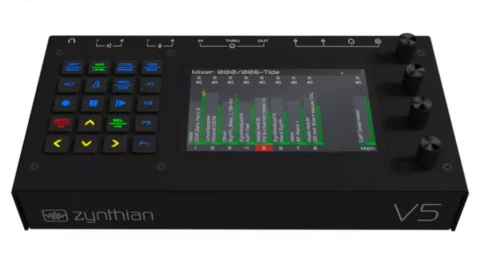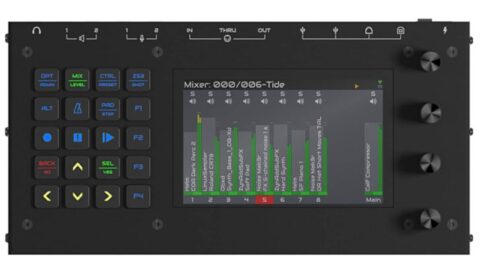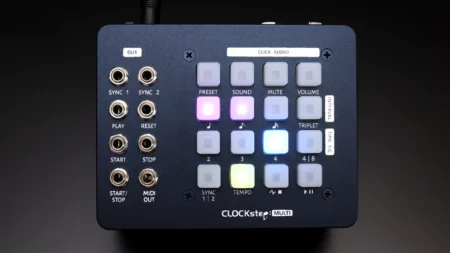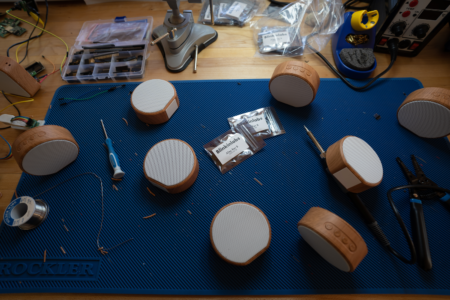ZynthianLabs introduces A DIY ‘Swiss Army Knife Of Synthesis’ Zynthian Kit V5

Developers of the Zynthian – an open hardware platform that promises to be a ‘swiss army knife of synthesis’ – have announced Zynthian Kit V5.
Zynthian 5 is a standalone, open-source music-making device that contains 50 synth engines and 100s of effects.
ZynthianLabs has introduced Zynthian Kit V5, which they say offers more display, more buttons, more connectivity, more power, more usability, more design, more quality and more integration.
First seen back in 2016, Zynthian is a different kind of standalone music-making device in that it’s completely open-source. Built around a Raspberry Pi and Open Hardware, it’s upgradable, adaptable and repairable, and has now been updated to version 5.

The new version of Zynthian has a redesigned physical enclosure that contains a 5-inch multitouch display, a bank of buttons and four controller knobs. It contains a wealth of instrument and effect engines, all based on free Linux plugins.
The engines include emulations of essential instruments and synths (piano, Rhodes, Wurly, Minimoog, DX7, Oberheim OB-X, etc) and there’s also SoundFont support. In fact, a 4GB collection of SoundFonts comes pre-installed.
If you want to make music directly on the device, you can do so via the step sequencer. Additionally, there’s a live looping sampler and audio/MIDI recorder/player, plus support for multitrack audio recording.
Zynthian Kit V5 enables you to create up to 16 chains and has a built-in mixer. Connectivity options include audio, MIDI, USB and Ethernet, enabling you easily use it as a keyboard expander for live work, a standalone effects processor or a synth that you can incorporate into your existing DAW-based setup.
ZynthianLabs says that they are limiting purchases of the Zynthian Kit V5 to a small group, initially, so that they can validate both the Kit and the assembling instructions before opening sales to everyone.
The Zynthian Kit V5 costs €490 exclude VAT without a Raspberry Pi and €570 exclude VAT with one (version 4, 4GB). Find out more on the Zynthian website.



